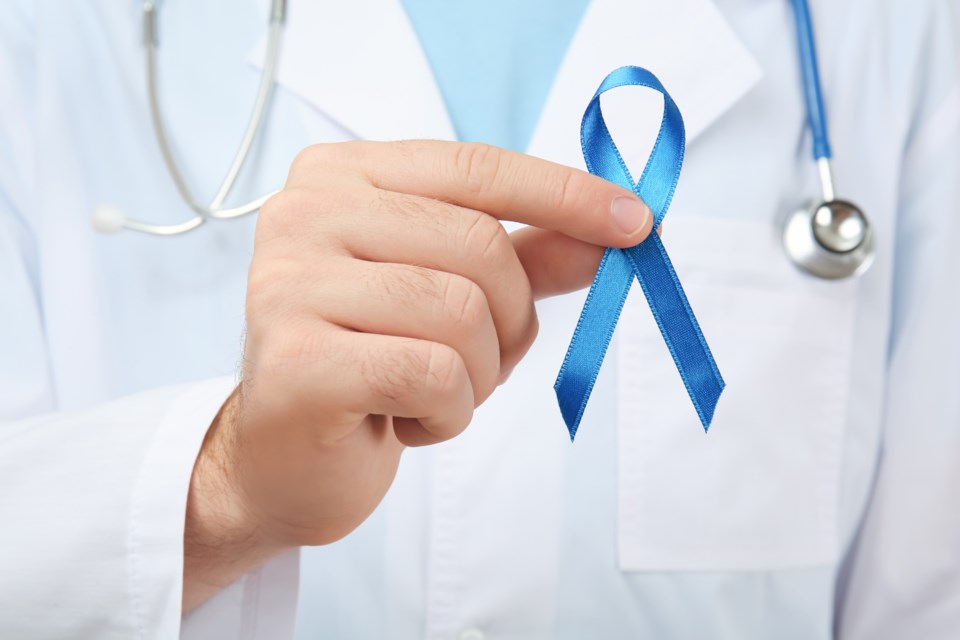In preventive healthcare, screenings are a cornerstone for early detection and intervention, potentially saving lives. Regular cancer detection checkups are indispensable in that regard, and among the most vital ones are those performed to detect colon, prostate and breast cancers. When identified early, medical specialists can often treat these three malignancies more effectively.
This article delves into the expertise of three medical professionals who specialize in performing colon, prostate and breast cancer screenings. They provide invaluable insights into when and why these screenings are crucial for maintaining good health, emphasizing early detection's significant impact on prognosis and quality of life.
Guidelines And Insights For Effective Colon Cancer Screening
Anthonia Adewole, MD, gastroenterologist, on the medical staff at Baylor Scott & White Medical Center - Centennial, provides essential guidance on colon cancer screenings. These screenings should commence at 45 years old for those at average risk, as recommended by the 2021 U.S. Preventive Services Task Force and other reputable organizations.
However, if there's a family history, screening may be necessary earlier. For example, in the case of inherited syndromes like familial adenomatous polyposis (FAP) and hereditary non-polyposis colorectal cancer (HNPCC), screening should start as early as age 10. Early detection through colonoscopy is critical, reducing the risk of advanced adenomas and colorectal cancer, along with associated complications and treatments.
Dr. Adewole emphasizes the importance of following medical instructions closely to achieve a successful colonoscopy. For example, adequate bowel preparation is crucial. It involves consuming a clear liquid diet, especially the day before the procedure. Lastly, keep in mind that although there are low risks associated with this procedure, it's a valuable preventive measure for colorectal health that no one should overlook.
Guarding Men's Health: Understanding Prostate Cancer Screenings
Dr. Christopher Cefalu, urologist on the medical staff at Baylor Scott & White Medical Center - McKinney, shares vital information about prostate cancer screenings. He mentions that, for most men, it's advisable to commence prostate cancer screenings between ages 45 and 50. However, individuals at a higher risk due to factors such as African-American ethnicity or a family history of prostate or breast cancer should consider starting their checkups at age 40.
Prostate cancer ranks as the most prevalent cancer. It is the second leading cause of cancer-related fatalities among men. Notably, it often remains asymptomatic when localized and curable. Early detection through screening is the sole means to identify it at an early, treatable stage.
The primary screening method for this type of cancer involves a straightforward blood test known as PSA (Prostate Specific Antigen). It is possible to conveniently incorporate this test into routine lab work with your primary care physician. If there is any elevation or deviation from your baseline PSA levels, it should prompt further evaluation by a urologist.
Empowering Women's Health: Insights On Breast Cancer Screening And Early Detection
Patricia Krakos, MD radiologist, on the medical staff at Baylor Scott & White Medical Center - Plano, gives her insights on breast health screenings. She recommends screening mammography should begin as early as 40 for women with an average exposure to breast cancer.
However, those at a higher risk for developing this health issue may need to start getting checkups earlier, depending on their family history and genetic mutations. Early detection allows for less invasive treatment and improves overall prognosis.
A screening mammogram typically lasts 15 minutes and is conducted at accredited breast centers. It is worth mentioning that breast cancer screenings for men are generally not recommended unless they have a genetic mutation or are at high risk.
Screenings Are The Foundation Upon Which We Build Our Defenses Against Health Adversaries
As we navigate the critical landscape of preventive healthcare, one thing remains abundantly clear: screenings are the foundation upon which we build our defenses against formidable adversaries like breast, colon, prostate and breast cancer.
In essence, screenings, facilitated by dedicated professionals offer a chance to take control of our health, detect potential threats before they become insurmountable challenges and ultimately lead healthier, longer lives. Prioritize these essential healthcare measures to protect your well-being and provide a brighter, healthier future.
With this information, we hope you feel ready to start screening your health preventively. Please don't hesitate to look for more information about the Baylor Scott & White preventive health care services at https://www.bswhealth.com/.
Physicians provide clinical services as members of the medical staff at one of Baylor Scott & White Health's subsidiary, community or affiliated medical centers and do not provide clinical services as employees or agents of those medical centers or Baylor Scott & White Health.




